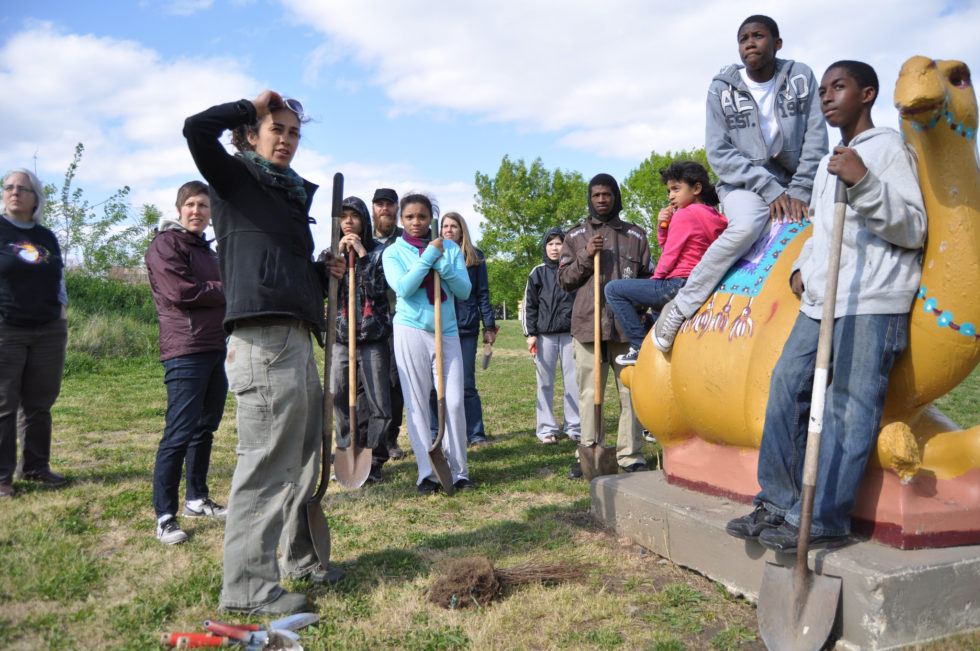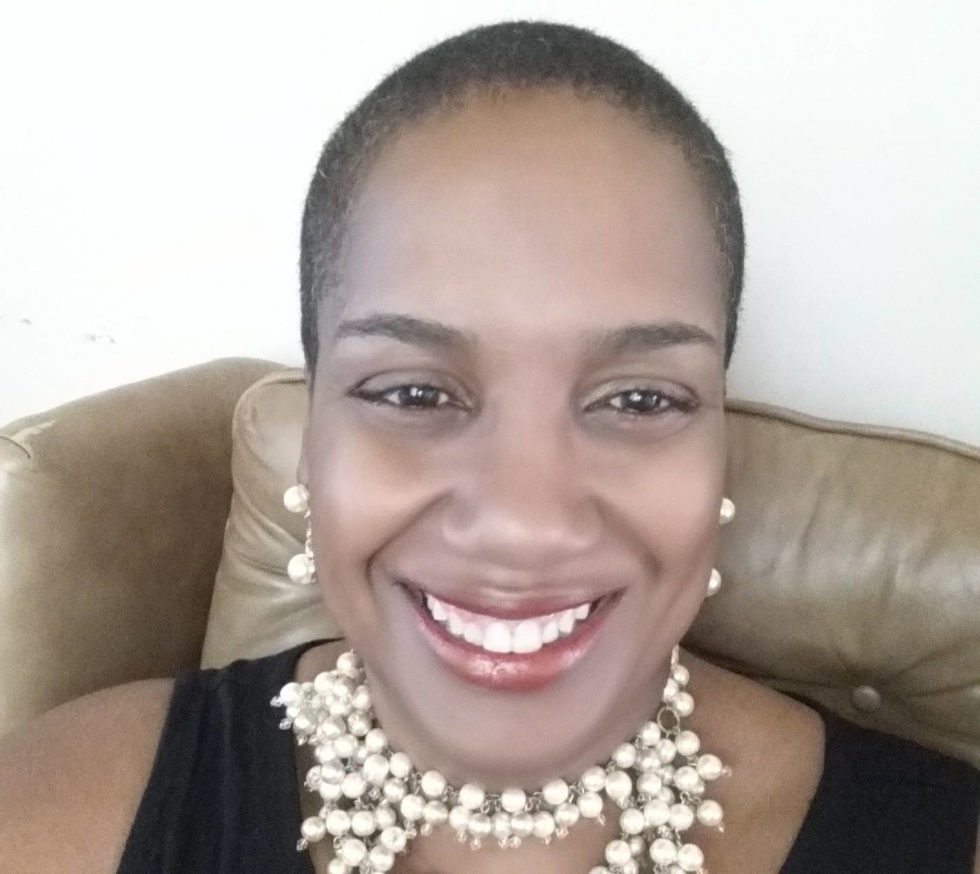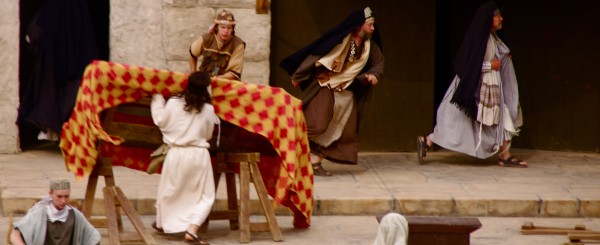
This essay was originally published in Anabaptist World in July 2022 as Quilts and Power: What Malcolm Gladwell is missing about Mennonites
On June 22, author and speaker Malcolm Gladwell published an essay on his participation in a Mennonite wedding in the town where he grew up in southern Ontario. Gladwell opens the piece by summarizing his previous coverage of Mennonites and expressing his deep affection for our community.
Gladwell writes enthusiastically that Mennonites are a “low power distance” culture. Power distance is a term from sociology that refers to the extent to which people of low status accept unequal distribution of power. In other words, Gladwell is saying Mennonites are wary of hierarchy. He says we have abandoned “the aggressive pursuit of status markers.”
Resisting political domination and illegitimate authority are at the core of Anabaptism. However, Gladwell’s public relations campaign on our behalf is problematic. Here’s why: Mennonites do have status markers, they are just different (sometimes) from those of dominant culture in the U.S. and Canada. If you advertise Mennonites as having no status markers, you set up false expectations that will lead to disillusionment by people who start attending Mennonite churches. (more…)
TimN
August 27, 2023
Mennonite Church USA, Politics, Power, Privilege
Read more >

This post was originally published two years ago as MMMMs: Expanding our Churchly imagination in my blog for The Mennonite. Thanks to Hannah Heinzekehr for adding photos to illustrate this piece.
In the wake of this summer’s Mennonite Church USA convention and the pending departure of Lancaster Conference, I am reflecting on the role of “Moderate Mennonite Male Managers” (MMMM’s) in our institutions. This recent essay by John Rempel inspired me to look specifically at a blind spot common among the the “Moderate Mennonite Male Managers” (MMMM’s) of our institutions. For those of you who haven’t read it, this quote summarizes Rempel’s thesis well:
Each type of church brings different gifts to the table. Moderates bring the willingness and capacity for meaningful compromise. Liberals bring the capacity to live with ambiguity and with matters that are presently incapable of solution. Conservatives bring a deep trust in the Bible and the Holy Spirit as sources of clear positions in matters of faith and life.
I resonate with Rempel’s 1 Corinthians 12 inspired vision of the different gifts of the body of Christ that he outlines. However, Rempel’s paradigm, focused around liberals, moderates and conservatives, misses a whole swath of our community and Anabaptist tradition.
To understand more about this missing community, I turn to the model of four streams of Anabaptism that Rodney Sawatsky outlined in 1992. In summary, he traces four contemporary streams of Anabaptism back to our 15th century origins: Separationist, Establishment, Reformist and Transformationist. I will focus in this article on the transformationist, but you can see Sawatsky’s table with all four in my 2007 blog post. These streams do not map perfectly onto Rempel’s model of liberals, moderates and conservatives, but however you slice the cantaloupe, the transformationist stream is glaringly absent.
(more…)
TimN
October 27, 2017
Four Streams of Anabaptism Series, Group Identity, Institutions, Mennonite Church USA, Power, Privilege, Race, Sexismbureaucracy
Read more >

This interview, originally published two years ago, was the eighth interview in my ongoing Anabaptist Camp Follower series in which I interview people who have been drawn to Anabaptism and Mennonites. Kelly Bates Oglesby is pastor at Park View Mennonite Church in Kokomo, Ind. Our interview happened before the massacre of nine Black Christians in Charleston on June 17. That act makes her words all the more important.
Can you share about your journey with Mennonite Church USA and becoming pastor at Parkview Mennonite Church?
As a requirement of my seminary study I needed to complete an internship in a faith community that was dissimilar from my own. As I perused the available openings I was drawn to one at First Mennonite Church in Indianapolis. The Mennonite setting was certainly dissimilar from my Free Will Baptist tradition even though both are Anabaptist in grounding.
Until I came to seminary and met Dr. Wilma Bailey, I had no personal interactions with Black Mennonites. My discussions with her and observations of her had piqued my interest. I submitted my application to First Mennonite Church and completed the process to become an intern. Unlike some learning sites, FMC wanted me to learn about the congregation and conference. Moreover, they allowed me to experience and experiment with ministry development.
During my initial year, I met weekly with the lead pastor to discuss theology and polity. Regular small group interactions helped me to learn to know the congregation. As part of my student work I initiated a project each semester to broaden the ecumenical witness of the congregation.
At the end of my first year, I was invited to complete my second internship year with the congregation. This was thrilling and concerning: I realized I was beginning to feel at home.
(more…)
TimN
July 24, 2017
Anabaptist Camp Followers, Mennonite Church USA, Privilege, Race
Read more >
Today a friend shared his experience when he was a young white teenager hanging out with young Latino men. When there was a possibility of encountering the police, they would say, “act white” and my friend would be asked to do the talking. What does “acting white” look like? If you’re asking that question, you’re probably white. For people of color in the United States there is often a “constant background processing” to empathize with white people around them and deal with their stereotypes. Strategies may range from dressing impeccably to whistling Vivaldi.
This week I’m preparing for a panel with Mennonerds on Race, Mutuality and Anabaptist Community. This blog post is a brief look at some of the themes I’m hoping we can discuss as practices for white people developing lenses to see differently through listening with humility.
Let’s start with changing lenses as Jesus talked about in this classic Sunday school passage, Matthew 18:1-5:
At that time the disciples came to Jesus and asked, “Who, then, is the greatest in the kingdom of heaven?” He called a little child to him, and placed the child among them. And he said: “Truly I tell you, unless you change and become like little children, you will never enter the kingdom of heaven. Therefore, whoever takes the lowly position of this child is the greatest in the kingdom of heaven. And whoever welcomes one such child in my name welcomes me.” (NIV)
Immediately in my mind’s eye I see this image or one of a thousand like it:

(more…)
TimN
June 11, 2014
Power, Privilege, Race
Read more >
Recently, I started rereading Paul’s First Epistle to the Corinthians. It’s been a long time since I have read Paul, and the last time I really read him, IÂ spiritualized him. By that, I mean that I made Paul’s words the words of an Anglo-Saxon Puritan. Coming from a Protestant (Reformed) background, it is really easy to see Paul’s talk of election in the meaning Calvinists give to it, and it is easy to see Paul as some modern German theologian in the tradition of Martin Luther. I was easily able to look at the material, political, and societal implications of Jesus’ teachings, but Paul was harder for me, due to that connection with Reformed Protestantism.
Going into First Corinthians anew, I learned that Paul’s epistle was written to a very special community of believers. Corinth was a deeply Roman and deeply cosmopolitan city. It was really the entire Greco-Roman world present in one place. This means that the Corinthian church was diverse, and part of that diversity involved Paul having converted both rich and poor, elite and common. The division of rich and poor in the Corinthian church was one of the reasons Paul wrote the letter. For example, in 11:17-34 we see Paul rebuking those were were treating the poor unfairly in communion. A passage that is particularly important in discussion these class relationships is 1 Corinthians 1:26-2:5: (more…)
KevinD
March 14, 2014
Class, Economics, Education, Privilege, The Bible1 Corinthians, Class, Kingdom of God, poor, rich
Read more >
MENNONITE CHURCH USA CHURCHWIDE STATEMENT ON LGBTQ COMMUNITIES, DIVERSITY, POWER, OPPRESSION &Â PRIVILEGE*
Introduction
Mennonite Church USA has roots in seventeenth-century churches planted by what today we might call “radicals” and “social justice activists” from Europe. Our church continues to grow and be enlivened by people who join us from many countries, backgrounds, races, genders, sexual orientations, abilities, as well as other diversities and differences. As Christians, we believe we are called to welcome these seekers of church community in our congregations and communities, especially as our government fails to serve all but a privileged few, with harsh laws frequently punishing difference. Assumptions about identity make some people more vulnerable to political biases and discrimination than others. Our concerns about the status of peace and justice in this country and in this world relate to how people are treated based on race, nationality, ethnicity, gender, sexual orientation, class, ability status, citizen status, religious identity as well as other statuses.
We reject our country’s mistreatment of people, repent of our silence, and commit ourselves to act with and on behalf of all our community members regardless of any status. (more…)
JenniferY
February 17, 2014
activism, antiracism, Current Events, disabilities, Ethics, Exclusion, Faith, Gender, Group Identity, Immigration, Indigenous, Leadership, LGBTQ, Love, Mennonite Church USA, Nonviolence, Peace & Peacemaking, Power, Privilege, Race, Sex, Tactics, Violencebisexual, gay, Inclusion, lesbian, LGBTQ, MC USA, MC USA Executive Board, Mennonite, queer, Statement, transgender
Read more >
You can read Response by Ervin Stutzman here, if you missed it.
Several days ago I noticed a flurry of activity — a letter signed by 150 pastors calling for welcome of LGBTQ folks, the Executive Director of Mennonite Church USA in response “earnestly desir[ing] that our church be faithful to scripture and God’s call,” articles about these developments, and comment section dust-ups. It seemed appropriate for me to acknowledge this flurry on behalf of my queer Mennonite self, and to make an initial response to the hopes and Menno-speak voiced within that flurry.
First of all, I receive the letter from the pastors as an example of allies (and I believe, a member or two of the LGBTQ community!) in positions of power and with legitimizing credentials standing in the gap for queer folks like myself whose voices are nearly always marginalized in any discussion about our lives and spirits in the Mennonite Church. I receive Ervin’s response as difficult to decipher Menno-speak backed by his authority as Executive Director, and positioned as (perceived) gatekeeper to the Mennonite Church.
Partly as a result of this (perceived) gatekeeper role, Ervin believes the 150 pastors’ beliefs and experiences are his and the board’s to judge and deem worthy of rightness or wrongness. Stutzman declares that he “lament[s] that the individuals and groups at opposite ends of the spectrum of concerns related to sexual identity and orientation are no longer willing to be in patient forbearance with each other.” He sat at the table with members of the LGBTQ community (or as he calls it, people on the LGBTQ spectrum), and believes that his recounting — from a position of power and authority — of these conversations with folks accurately represents LGBTQ and allied experiences in the Mennonite Church, and he bases his conclusion on that belief. His conclusion is that “even among the closest family members of individuals with LGBTQ identity there is no consensus on the moral and theological implications.” I am assuming he means the moral and theological implications of being a member of the LGBTQ community, but the sentence is unclear.
Secondly, I receive the letter from the pastors as a plea to the church to find a better way of addressing our differences. I receive the letter from Ervin as a plea for members of the LGBTQ community to continue bearing the brunt of hatred, of silent treatment, of being ignored, passed over, and mistreated while members of our community stand by, and to be patient all the while. I also receive it as a plea for those who have a deeply held, unmovable, unchangeable belief that acceptance of members of the LGBTQ community is a sign of the spiritual downfall of the church to sit back down in the pews, and forebear.
(more…)
JenniferY
February 6, 2014
LGBTQ, Mennonite Church USA, Poetry, Power, Privilege, Social justiceErvin Stutzman
Read more >
You may have seen news lately about different countries considering new harsher penalties for sodomy or whatever language they might choose. It’s happening in Russia, Uganda, Nigeria and Kenya and I’m sure many other places.
These days in the US many queer folk are tracking the lawsuits in each state that are striking down the same-sex marriage bans. It’s exciting for sure and I look forward to June of this year when all consenting adults will finally be able to marry here in Illinois.
In the midst of all this though I see news stories of a strong trend in the opposite direction in many other parts of the world. When I see a young man accused of homosexuality being tried and beaten to death in the streets by a vigilante mob I’m shocked! I never worry about this happening to me when I step outside my home in Chicago. While there are parts of this country I worry that I might be physically harmed for being gay I never expect to be put to death due to my sexuality.
The disturbing thing about these laws is that the consequence imposed by the government for breaking these laws is meaningless. The reality is that that people accused of homosexuality may never make it to court and if they do they may even be killed in the courtroom. This is how intense the homophobia is in some countries.
When I read the article about what happened in Nigeria my mind went certain places and I suspect that many people’s minds and hearts do the same. I think about how terrible these people are. I wonder how they can do these awful things. How does someone cultivate this kind of hatred and violence in their heart? Finally I become indignant! (more…)
benjaminjanderson
January 27, 2014
Bias, Death, Exclusion, Family, Hate, LGBTQ, Martyrdom, Peace & Peacemaking, Polarization, Power, Privilege, Race, Social justice, Violence
Read more >
When I began looking for an Anabaptist congregation, I was immediately drawn to the San Antonio Mennonite Church here in the Alamo City. Truth be told, I probably would have stayed within our house-church if it weren’t for the fact that many of our families were moving. But as necessity compelled me to search for a tribe, the Anabaptist emphasis on Jesus discipleship, servant minded non-violence, and its history of persecution welcomed me. I’m glad we found a home in the MCUSA.
Having grown up as the son of an ordained minister in the Southern Baptist Convention, I was frightfully aware of the denominational politics our family encountered having served under two SBC Presidents. But Anabaptism offered more than that, with less, or so it seemed.
Theda Good’s recent ordination seems to have served as a sort of catalyst in the ever growing divide between the young and old, urban and rural MCUSA membership. But from my location, these reactionary reverberations seem to find their epicenter on the conservative side of the aisle while the almost certainly inevitable LGBTQ ordination seems to originate on the progressive side. Regrettably, I feign to even use the binary language associated with progressive versus conservative politics, but it seems that such language indicates that we have already bought in to the us vs. them mentality that dominates our American culture.
What about the Third Way?
I’m perplexed as to why we’re having this conversation in the first place. Looking at arguments from “both sides,” I keep asking myself, “where is Jesus in this?” I see Jesus in the calls for humility and servanthood. I see Jesus in the cautionary language encouraging dialogue instead of schism. But I don’t see Jesus in the Soddom and Gommorah rhetoric, and neither do I see it in the practice of ordination.
(more…)
TylerT
January 3, 2014
activism, Anabaptism, Bigotry, Church, Class, culture, Current Events, empire, Exclusion, Faith, Gender, Leadership, LGBTQ, Mennonite Church USA, neo-Anabaptism, Privilege, Race, Schism, Sexism, Social justice, The Bible, Tolerance, Tradition
Read more >
Earlier this month, Charity Erickson wrote an article, “Peace Reformation = Humble Leaders” that offered some questions and challenges for neo-Anabaptists around leadership and the roots of this growing movement. The response, in the comments on her post and on social media, was cantankerous. I followed up with her to do an interview, the fifth in my Anabaptist camp followers series. My questions are in bold. Crossposted from As of Yet Untitled
 What does neo-Anabaptism mean to you?
What does neo-Anabaptism mean to you?
Charity: I understand neo-Anabaptism to be an ecumenical movement that is inspired and influenced by Anabaptist thought. This influence isn’t confined to traditional Anabaptist thought as expressed in documents like the Schleitheim Confession; it includes the critique of power that we get from post-modernism and post-colonialism. These critiques are not native to Anabaptist thought. In many ways, they are not native to Western thought. But they are good critiques; they are Spirit-guided, I think.
How did you first come across neo-Anabaptist thought and practice?
Charity: When I was 11–around 1996–I joined the Bible Quiz team at my Christian Missionary Alliance church. We memorized a lot of scripture; but we also had these t-shirts that we inherited from a group that had recently split off from our church to focus on their urban ministry in Minneapolis, which included communal living, serving those struggling with poverty, and fostering interfaith dialogue. The t-shirts were black with an anarchic kind-of symbol on the front, and the words, “Resistance is Futile.”
(more…)
TimN
October 26, 2013
Anabaptist Camp Followers, empire, neo-Anabaptism, Power, Privilege, Race, Sexism
Read more >
Douglas Jacobsen in his essay “Anabaptist Autonomy, Evangelical Engulfment” describes a Mennonite ‘diaspora’ in two senses. First is the sense that ideas and movements from other denominations and traditions have gone out from their homes and have settled among the Mennonites. Mennonite churches can feel very different, with charismatic, evangelical and even liturgical influences making their rounds. Second is the sense that Mennonite ideas and movements have gone out and settled among other Christian traditions of all sorts – Evangelical, mainline Protestant and even High Church.
I am part of this strange diaspora. On the one hand the faith communities I have been apart have been formerly Anabaptist. These congregations have come from traditions that at one time were Mennonite or still retain the name but who no longer bear any Anabaptist distinctiveness, having been caught up in the wider Evangelical movement. On the other hand in Bible College I was significantly influenced by Anabaptist ideas, read intensively of Anabaptist writers, with my vision for faith and community coming into close proximity to those that descend from Harold Bender’s “Anabaptist Vision”.
Now when I say “I read intensively of Anabaptist writers” I perhaps am being dishonest. It was really one Anabaptist writer who influenced my thinking and has shaped the way I look at things immensely: John Howard Yoder. As a young evangelical at odds with the social witness of the evangelical tradition I found Yoder’s writings refreshing. Dare I even say life giving. Within my first year of bible college I recall reading at least five of his books. At the same time I observed other young evangelicals becoming excited with missional church writings, or the work of new monastics like Shane Claiborne and Jonathan Wilson-Hartgrove. Anyone familiar with book indexes could easily figure out that Yoder’s shadow has been cast on these writings.
And here’s the thing: it was not just about thinking. It is about how lives are lived. For me Anabaptism as mediated by Yoder opened up doors for a radical discipleship that had only been hinted to in my congregations. For one thing it helped shaped a long-term commitment to a new monastic community in Kitchener-Waterloo I helped found. It helped me engage issues of poverty and injustice in new ways. In reinvigorated a commitment to pacifism, transforming the nonresistance I had inherited from my grandparents into a robust, articulate sense of nonviolence.
During my second year I stumbled upon the story of Yoder’s abusive actions and the Church’s response. Needless to say I was disgusted and disillusioned. (more…)
IsaiahB
October 17, 2013
Anabaptism, Leadership, Mennonite Church USA, Polemics, Privilege, Sexism, Theology
Read more >
This post originally appeared on my blog, Koinonia Revolution.
I was reading a really interesting and really disappointing article about poverty and our perception of it yesterday. It does not say anything I did not already know, but it did get me thinking about something when I read this:
Prejudice against the poor increases during hard economic times, said John Dovidio, a Yale University psychology professor.
“Our society is based on the idea that if you work hard, you get more, and if you have less, you deserve less,” Dovidio said.
Unfortunately, this is exactly the case, and you can just turn on one of the major news stations or a political talk show to see it. I personally see it even among members of my own family, which is funny because my family is not very prosperous to begin with. Our society has the assumption that everything is the result of an individual’s actions, which seems to be product of our emphasis on individualism to me. If you are poor, it is because you are lazy, not because you might be mentally ill, handicapped, born into poverty, or unemployed. And if you are rich, it is because you are a “job creator” who works hard. It literally saturates American culture and media. (more…)
KevinD
August 9, 2013
Class, Economics, liberation theology, poverty, Privilege, Social justiceBeatitudes, Class, poverty, rich, Sermon on the Mount, Sermon on the Plain
Read more >
By Pam Nath. Cross-posted from The Mennonite 
Image by Ricardo Levins Morales
If “your” elected officials are middle-aged, white people who smile at you a lot, it may be time to relocate. Being a “minority” – even a sizable minority – in a city with white officials has become more of a hazard than at any time in the last twenty years. American justice is divvied out across a great racial divide. We don’t believe that Black elected officials are – on their own – a cure for our problems. However, we do have a greater ability to pressure them. [Living in a white community], you may have more government services, but those services include more policing by officers who think your child is dangerous. If you move, the idea that your child is not as easily singled out can give some comfort.
—Kamau Franklin, New Rules for the Black Community after the Zimmerman Verdict
“We know that the whole creation has been groaning in labor pains until now, and not only the creation, but we ourselves, who have the first fruits of the Spirit groan inwardly…Likewise the Spirit helps us in our weakness; for we do not know how to pray as we ought, but that very Spirit intercedes with sighs too deep for words.” Romans 8: 22—23a, 26
Because I know that Kamau Franklin’s words in the quote above are likely to be disturbing to many people who read this column, and some may be tempted to dismiss them as the words of a hateful demagogue, I want to begin by saying that I have met Kamau on several occasions, and once participated in a two-day strategic planning meeting with him. He has never been anything but kind and friendly to me, a white woman, and in fact, has always struck me as a particularly gentle and thoughtful person. If his words seem jarring and painful to you, my plea to you is to struggle to hear them nonetheless. I think doing so is critically important to the life of our church because I am sure there are other Mennonites who are reading this column who totally get where Kamau is coming from, and in fact are feeling and wondering similar things as he. We are a divided church and sadly, the dividing walls between us (Ephesians 2:14), rather than being broken down by a free movement of the Spirit, too often are growing ever thicker.
(more…)
PamN
July 21, 2013
antiracism, Church, Privilege, Race
Read more >

Oh how I wish Jesus had set a better example!
Let’s be reasonable here. He should have proposed his prophetic action in consultation with the religious leadership far in advance of the Passover feasts. This would have reduced so much stress for the Pharisees and scribes.
He shouldn’t have made his case using sacred scriptures. Too risky, too radical, too much playing his religion card like he knew it all. Why did he have to bring Isaiah or Jeremiah into this, crazy activists claiming God’s house for foreigners, eunuchs and the like! One issue at a time now! How dare he come to the temple with an agenda!
He certainly should have worked within the structures to ensure no one would be offended, no one would risk the chance at dialogue due to untimely, unvetted mention of certain outcasts. Didn’t he know that if you want to include these people, you have to exclude those people.
He should have toned it down at least a little, no name-calling nor blocking pedestrian traffic in the temple. And what’s with the whip of cords!?
Read more and get involved over at overturningtables.org!
CharlettaE
July 1, 2013
activism, Allyhood, Anabaptism, antiracism, Current Events, Exclusion, Gender, Group Identity, Immigration, Indigenous, LGBTQ, Mennonite Church USA, Peace & Peacemaking, Polarization, Power, Privilege, Race, Social justice, Spiritual Life
Read more >
This piece by Rachel Halder is cross-posted from Our Stories Untold, a blog provoking conversation and allowing women and men to tell their stories about sexualized violence within religion, specifically the Mennonite Church.
“Most men in their lives will not commit sexual violence,
but most acts of sexual violence are committed by men.”
Joe Campbell from Calgary Communities Against Sexual Abuse

In order to end sexualized violence against women, children and men, we need men.
To end child abuse, domestic violence, verbal and physical abuse, we need men.
To end misogyny, we need to look to our young boys, teens, and husbands to assist in the fight for women’s rights. We need men.
It is when we see rape as only affecting the female victim that we’ve lost an important truth in the world. When we view the physical and psychological repercussions of abuse as damage only impacting the victim, we are missing a vital point. Rape and sexualized violence–whether it’s being committed against a man, a woman, or a child–destroys our collective humanity. It destroys our communities and institutions, even when we turn a blind eye or don’t admit that it’s there. Sexualized violence seeps into the cracks of our consciousness and it wiggles its way into our understanding of the world, gender roles, and where the blame should fall when such violent and horrible crimes are committed. This unawareness of rape is what allows rape culture to thrive. It’s what allows situations like Steubenville happen. And when we ignore it and act like we are separate or somehow different from these crimes, we are lost. (more…)
RachelH
February 12, 2013
activism, Power, Privilege, Rape, Sexismchild abuse, Christianity, Church, gendered violence, good men project, Our Stories Untold, Rape, religion, Sexual Abuse, sexual violence, Steubenville, violence against women, voices of men
Read more >




 What does neo-Anabaptism mean to you?
What does neo-Anabaptism mean to you?

